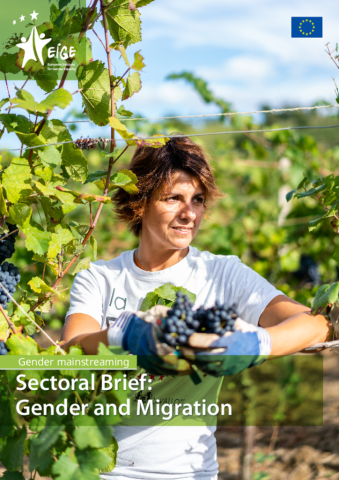Around seven per cent of the total population living in the EU Member States are born outside of the EU, and half of them are women and girls. Work, study and reuniting with family members, as well as different forms of persecution, are common reasons motivating both women and men to migrate and live in other countries.
Migration can bring new opportunities to migrants and their families. However, there is also an adverse side to migration. This brief looks at the main gender inequality issues related to migration status in the EU, including labour market participation, deskilling and the informal economy, family reunification, international protection and gender-based violence.
Read more
Gender and migration on EIGE's Gender Mainstreaming Platform
